Syria war: 20,000 abandon tents after floods inundate camps
- Published
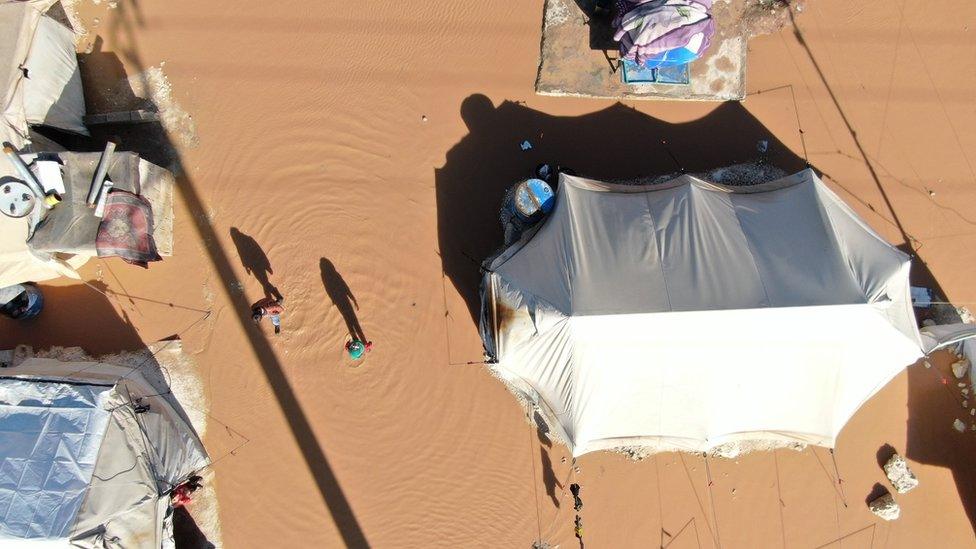
A girl and a boy stand next to their flooded tent at camp in northern Idlib, close to the Turkish border
Heavy rain and snow, strong winds and flooding in north-western Syria have forced more than 20,000 displaced people to abandon their tents.
Aid agency Care said camps had turned into "lakes" at 87 sites, external in northern Idlib and western Aleppo provinces, which are held by opposition forces.
Some people were having to shelter in public buildings or out in the open as temperatures fell below zero, it said.
One child has reportedly died as a result of the harsh weather conditions.
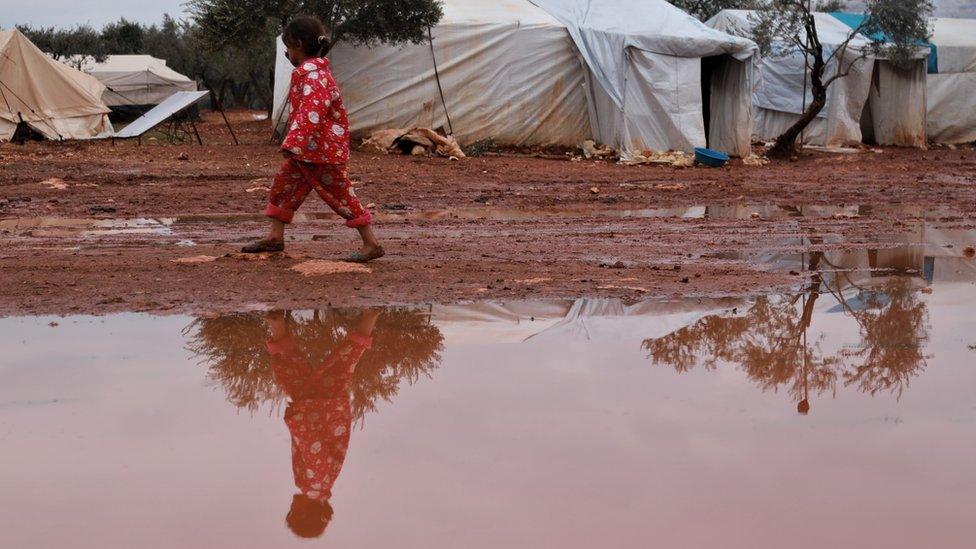
Some 6.6 million people are internally displaced across Syria
Children and women make up 80% of the region's 1.5 million camp residents.
More than 12 million Syrians have fled their homes since the start of the uprising against President Bashar al-Assad almost 10 years ago. Some 6.6 million are internally displaced, while 5.6 million have sought refuge abroad.
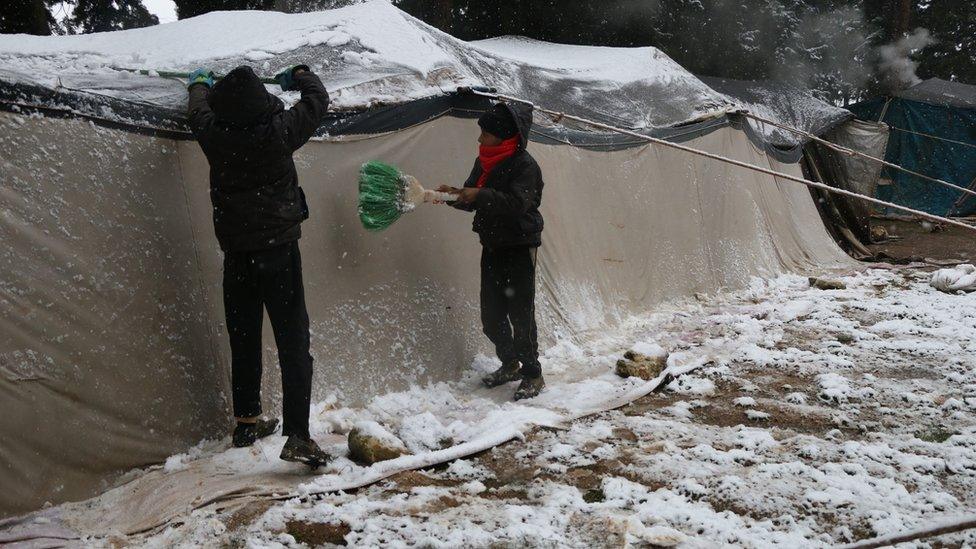
After snow fell in western Aleppo, children cleaned the roof of their tent to prevent it from collapsing and to stop water leaking inside
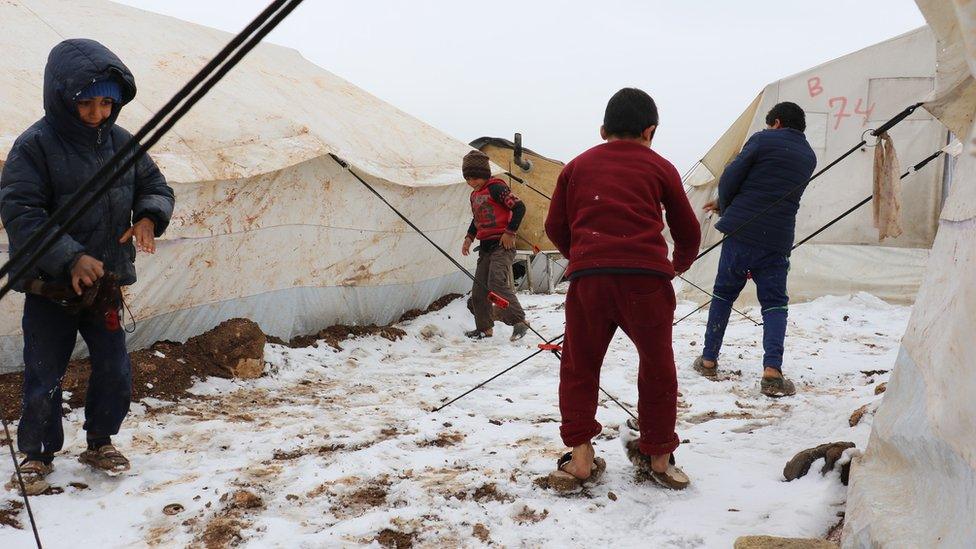
Some displaced people are having to shelter in public buildings or out in the open as temperatures drop below zero
Care's country director in Turkey, Sherine Ibrahim, said humanitarian organisations were rushing to provide emergency relief to the thousands who had lost their homes in Aleppo and Idlib, but that reaching them had been made difficult by the flooding of access roads.
They are also concerned that the situation might contribute to the rise in Covid-19 infections, she added. As of last Wednesday, health authorities in north-western Syria had recorded 20,000 confirmed cases and 379 deaths.
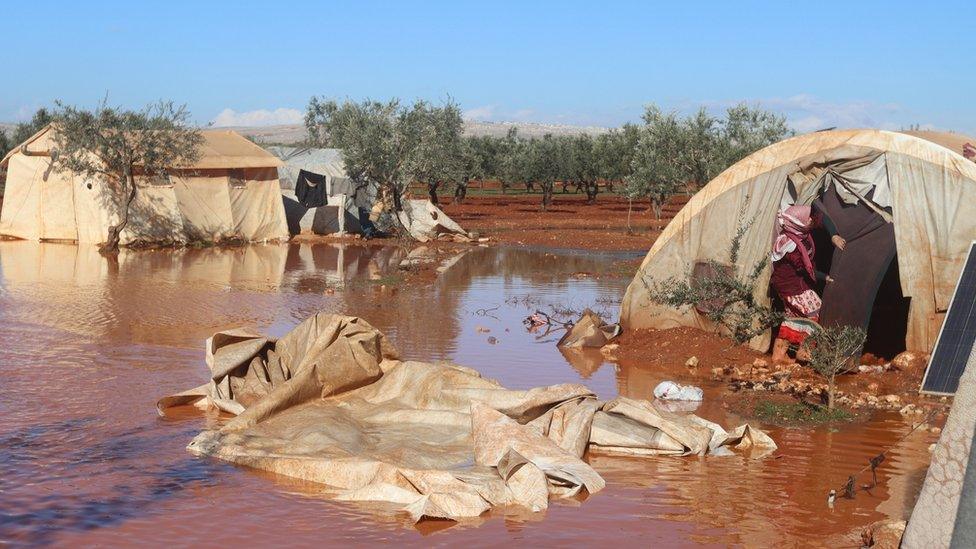
Most camps in the region are located in flat orchards, suitable for agriculture rather than construction
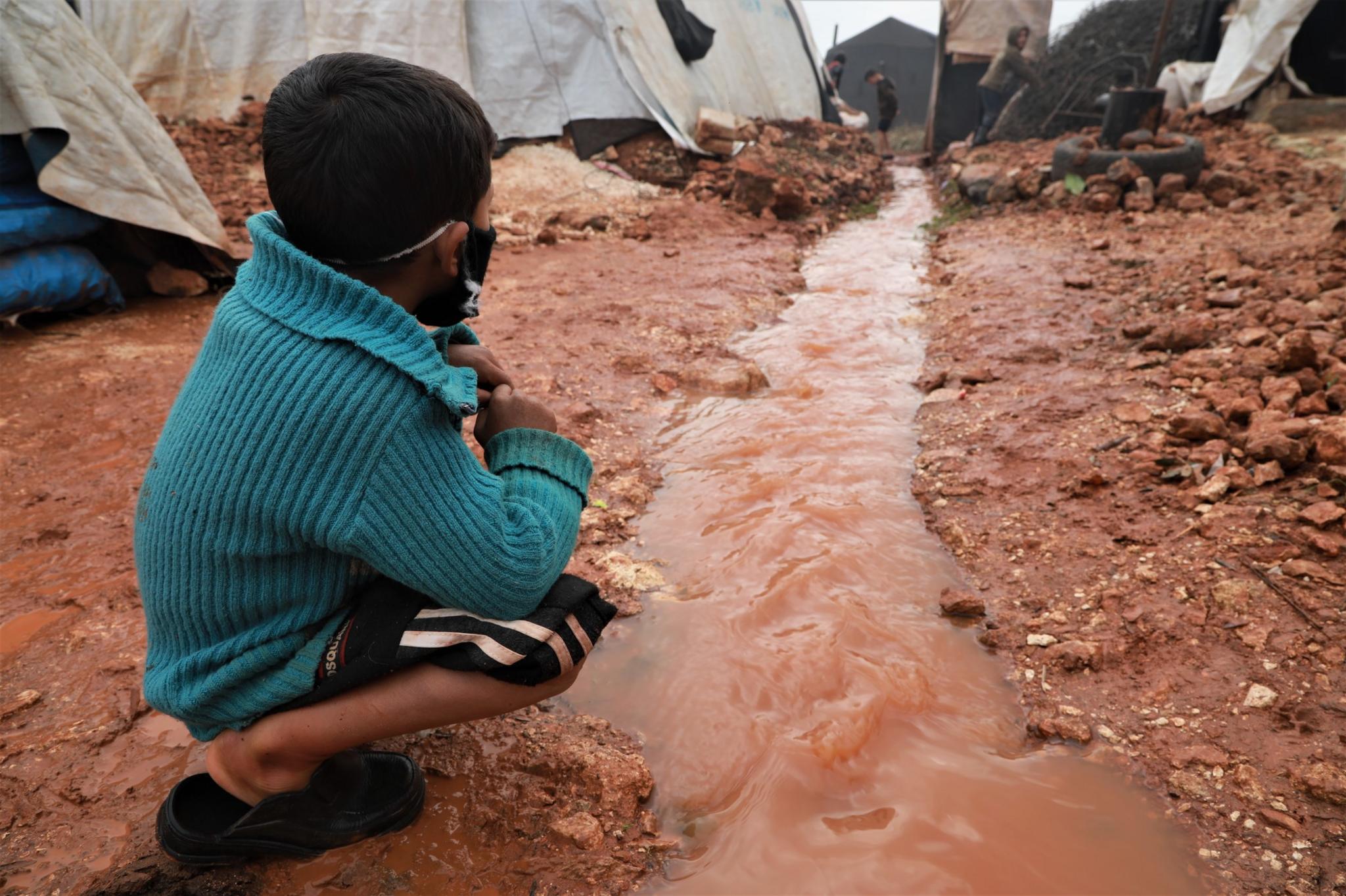
The ability to repair affected tents is limited during the winter, and floods are likely to reoccur with renewed rainfall
"With inadequate shelter and increasing hunger for displaced Syrians in the north-west of the country, they are running out of coping strategies to keep themselves and their loved ones safe," Ms Ibrahim warned.
"Zainab", a woman living at a camp in Idlib told Care: "The water came into the tent where I live with my grandchildren, covering the ground. We cannot live in it now. Look at how our situation has become. We do not have blankets, food, or any other supplies.
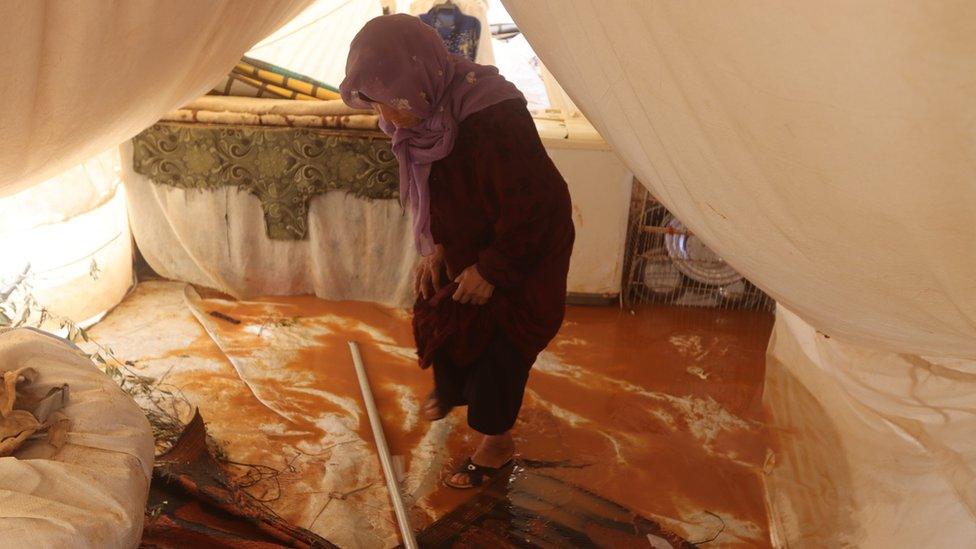
"Zainab" and her grandchildren were living in one tent at a camp in northern Idlib
"The water has destroyed everything; there is nothing left. These are difficult times," she added.
"Abu Ali", who was displaced last year, said his family had not had any clean drinking water for more than a week because there was no way for aid agencies to deliver it to their camp.
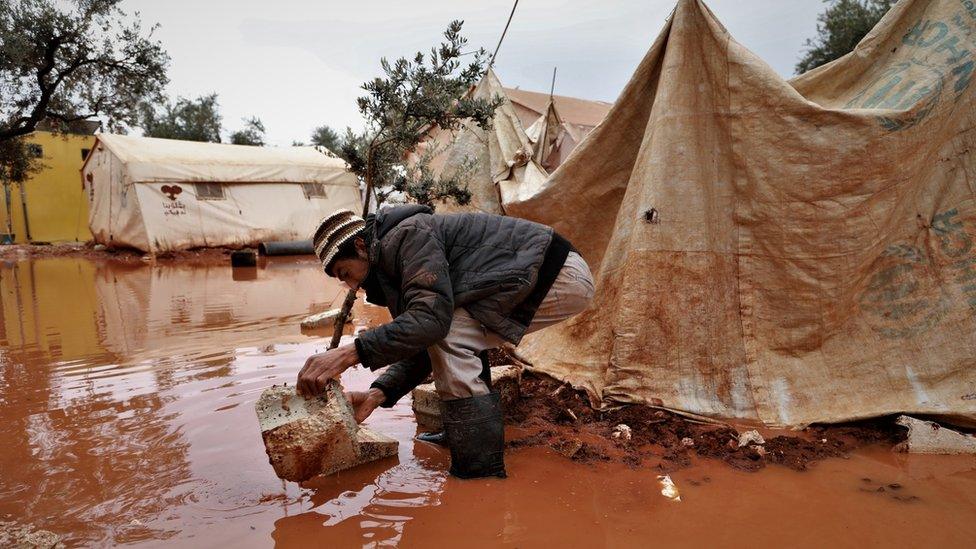
"Abu Ali" does not have dry clothes, mattresses, or blankets to keep him and his children warm at night
The Syria Civil Defence, whose first responders are known as the White Helmets, said on Sunday that it was continuing emergency operations despite the rainstorm ending, external. It was also providing services and assistance to more than 3,200 affected families in more than 225 camps.
Last week, the Syria Civil Defence reported that a six-year-old boy was killed in Idlib after a brick wall built around his tent collapsed on top of him.